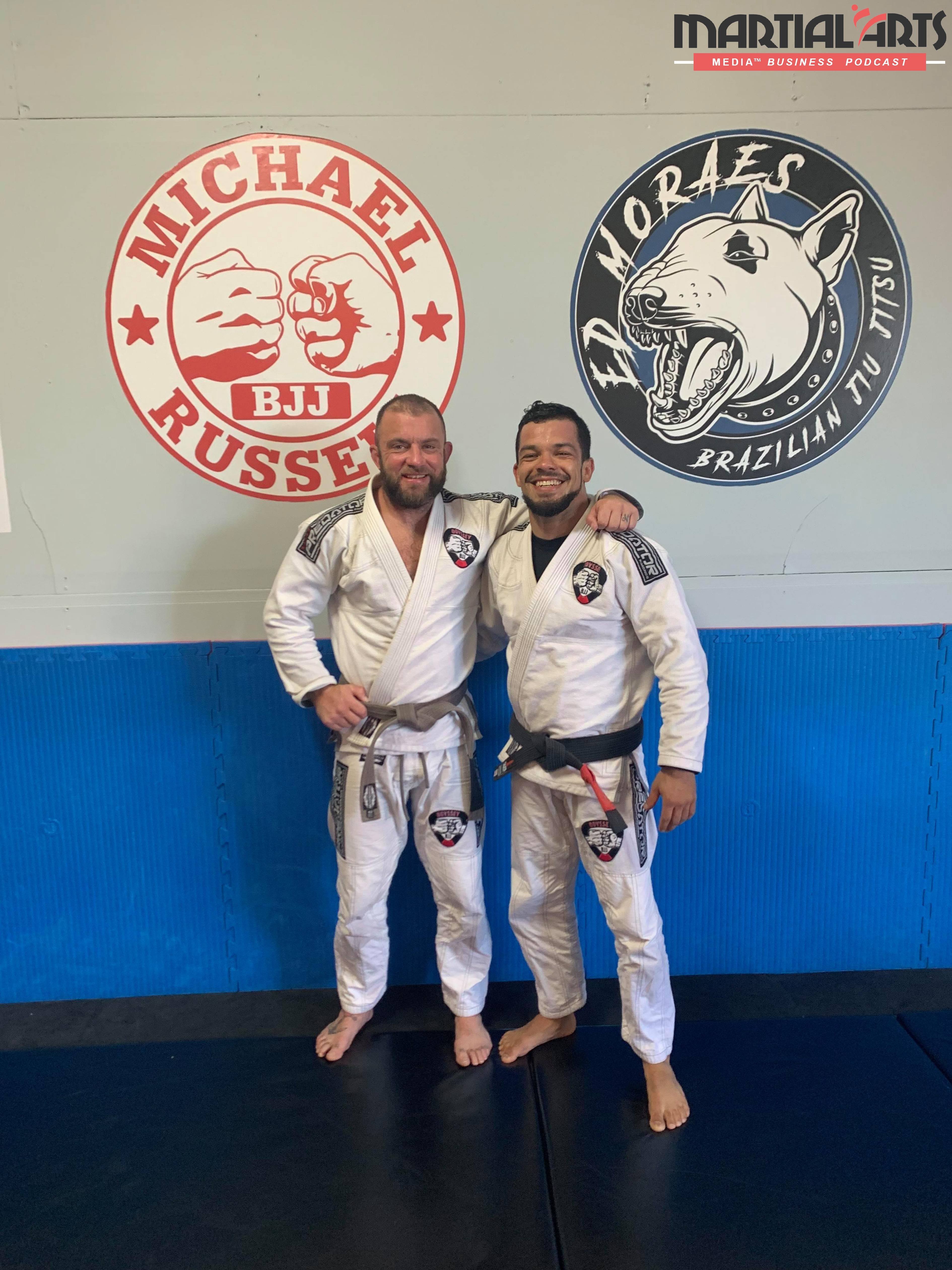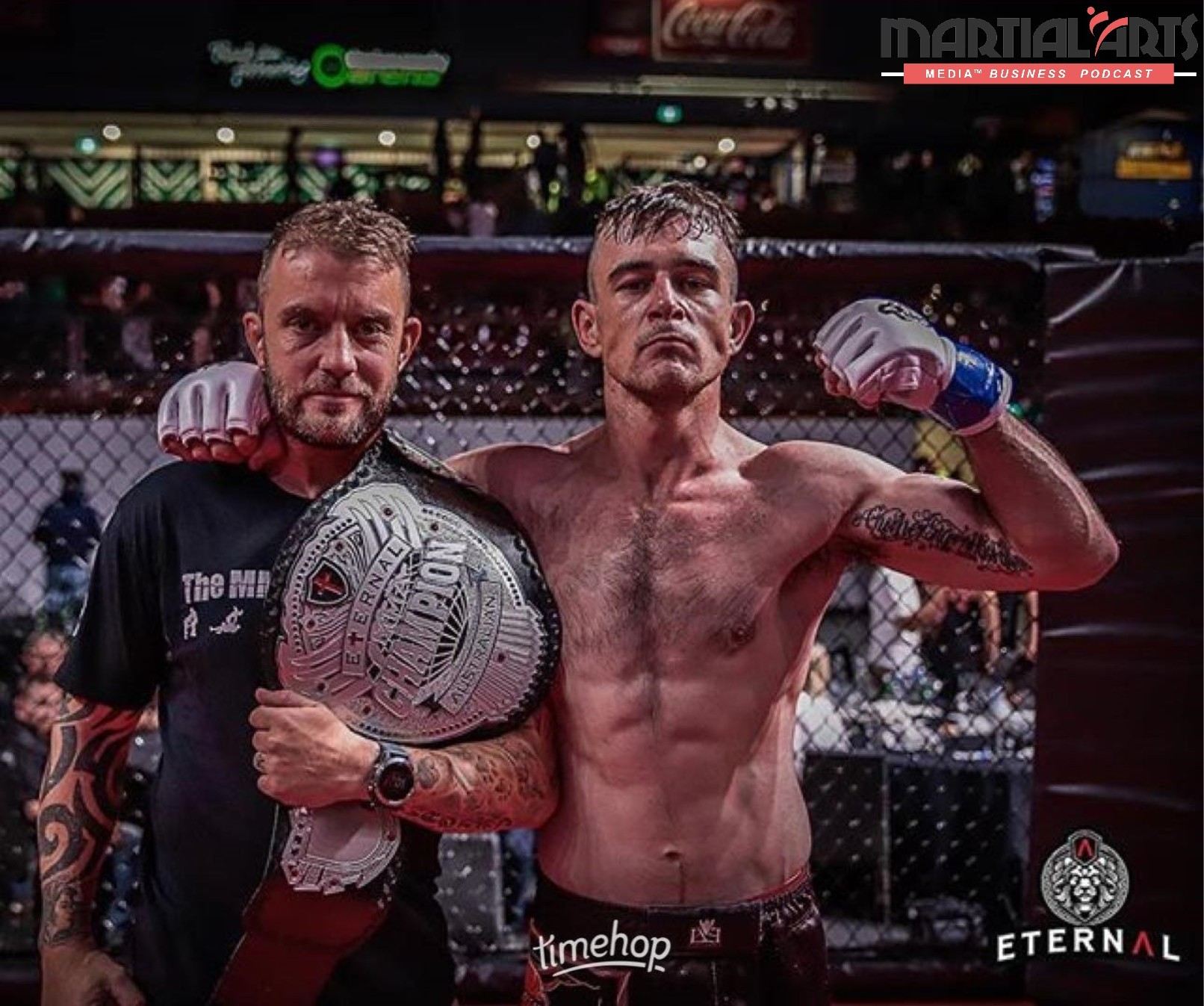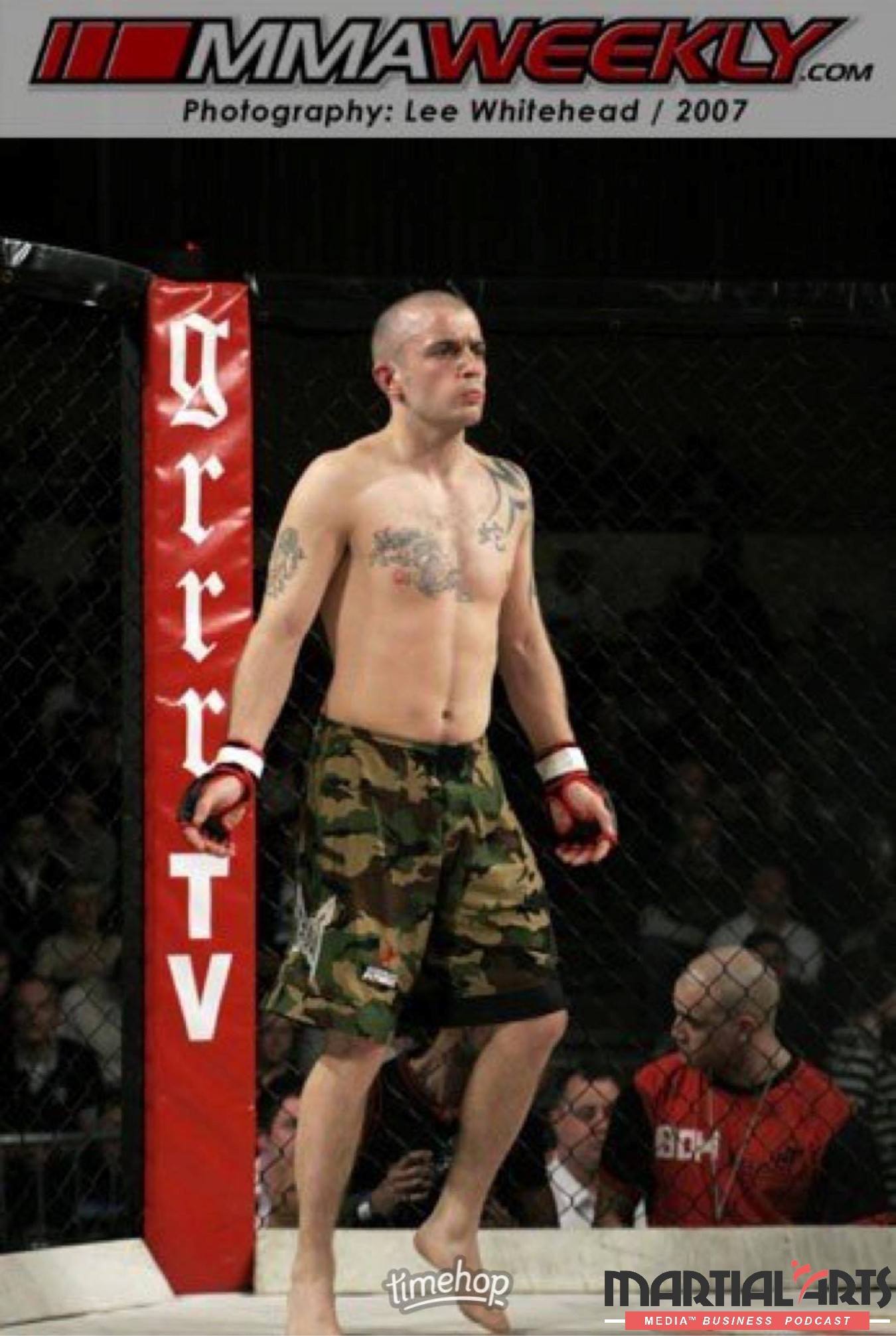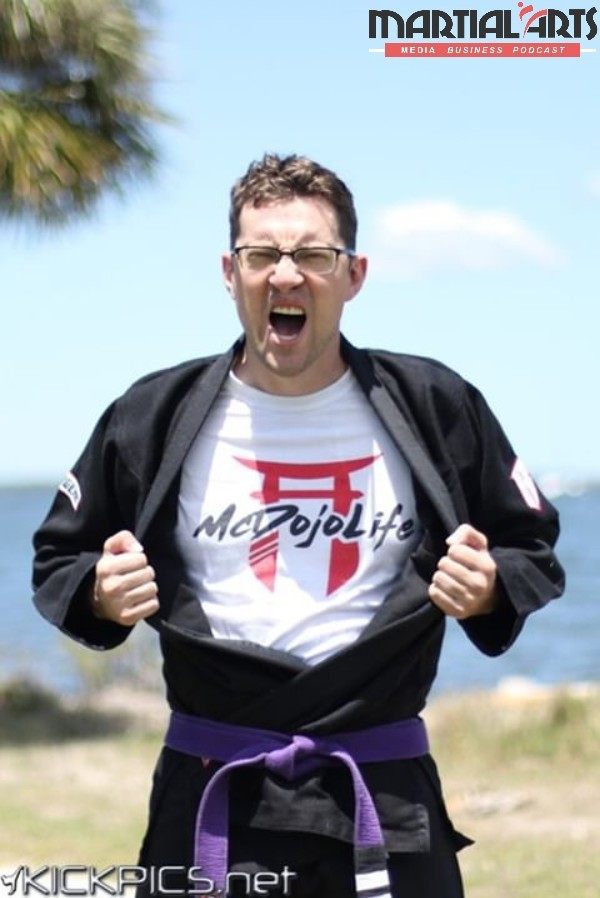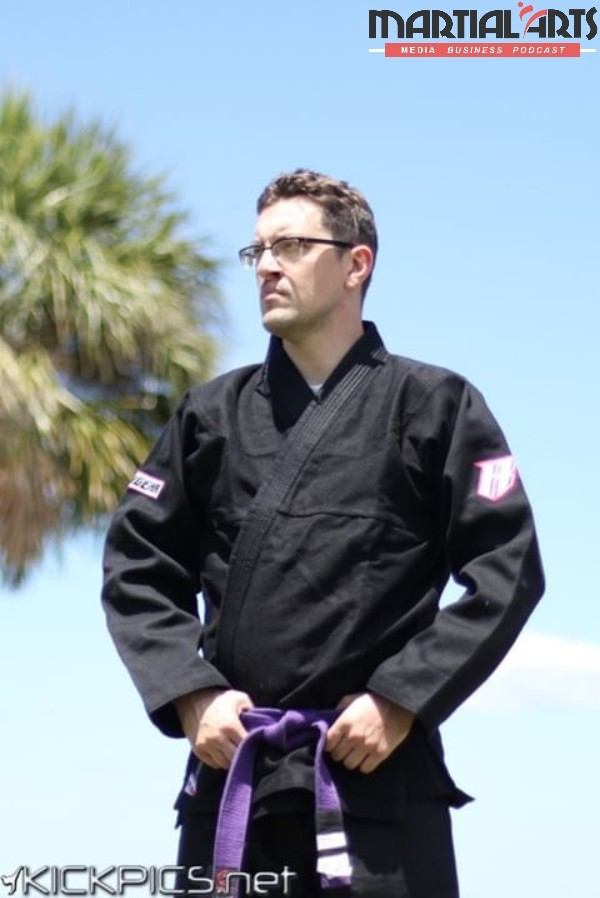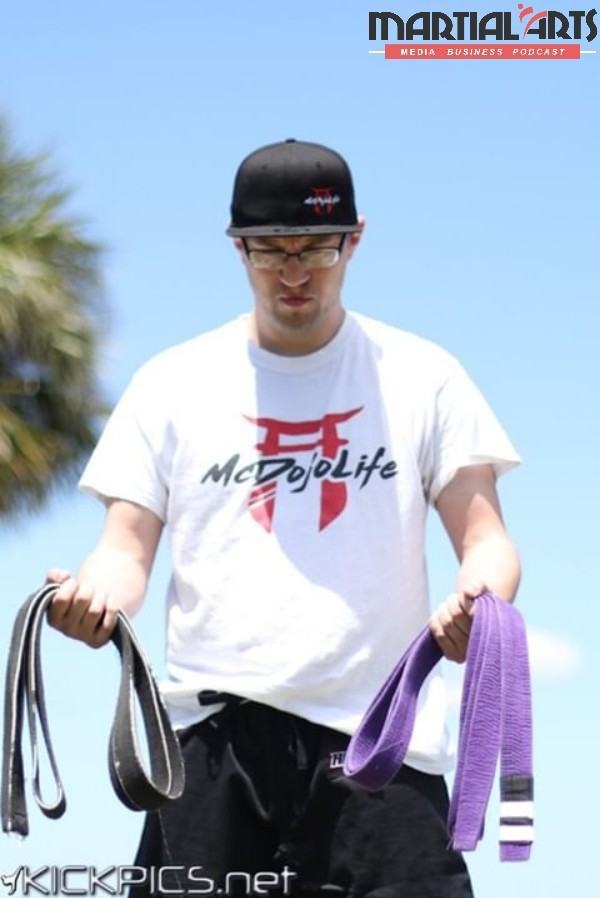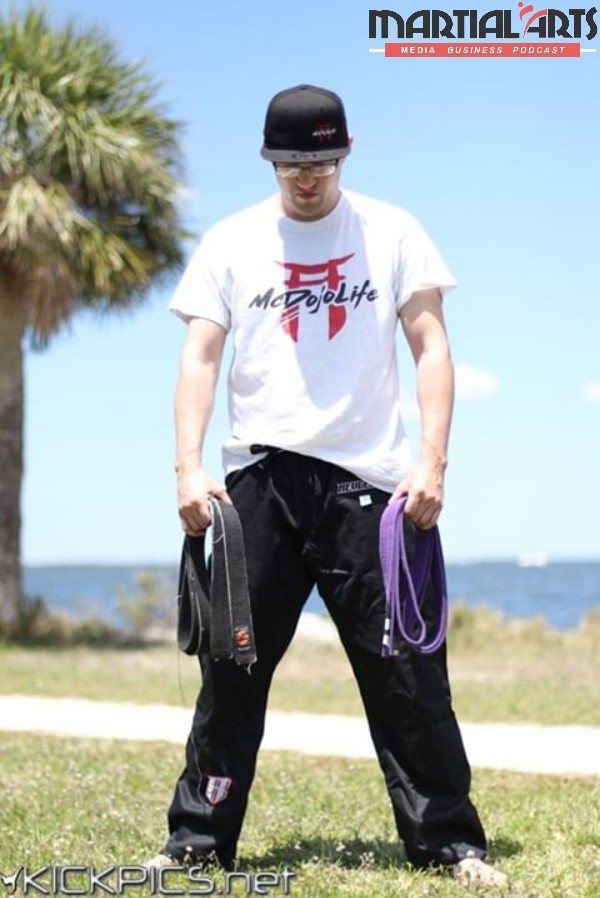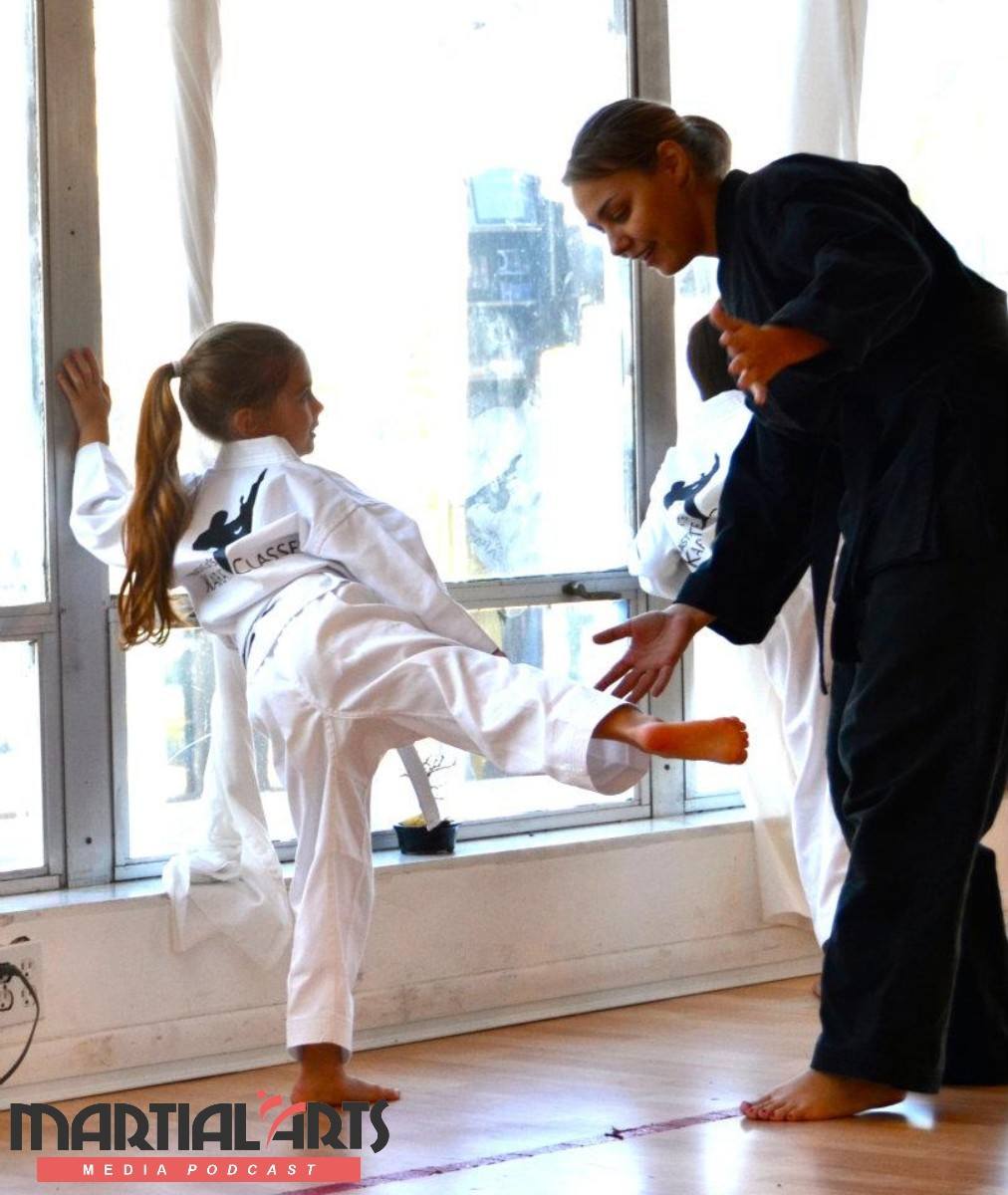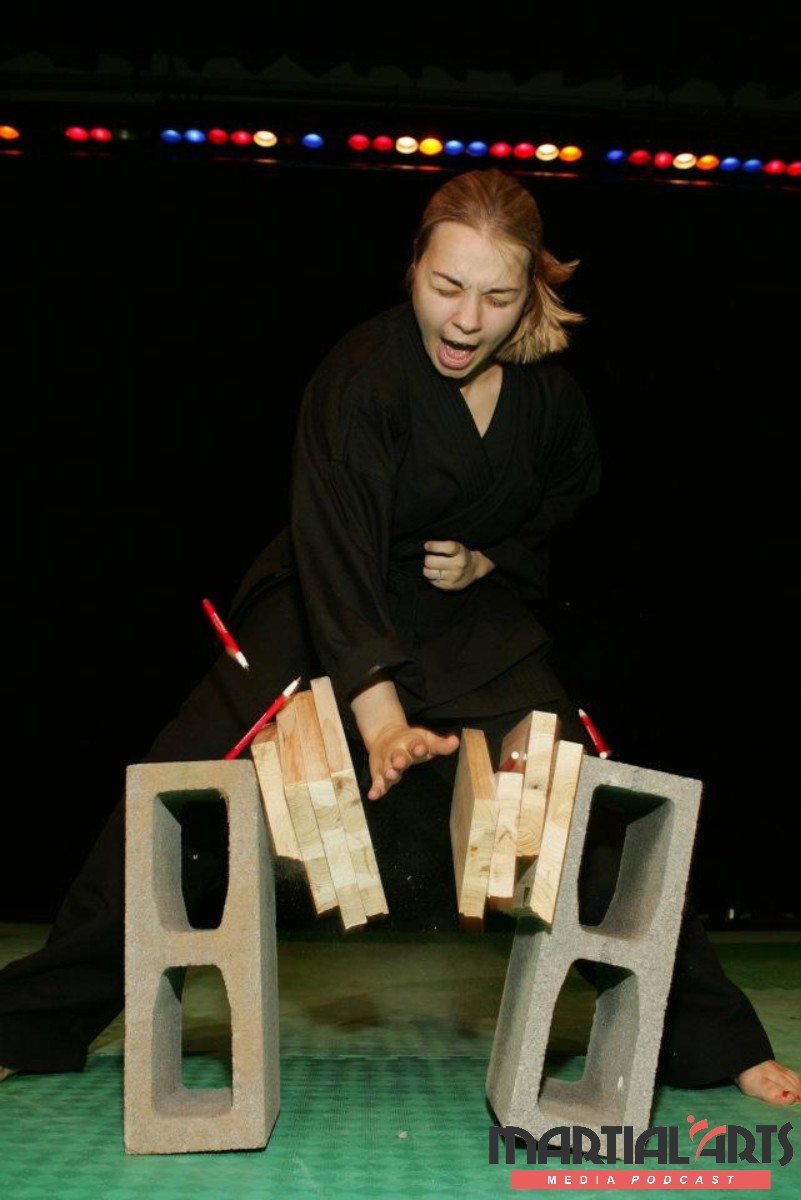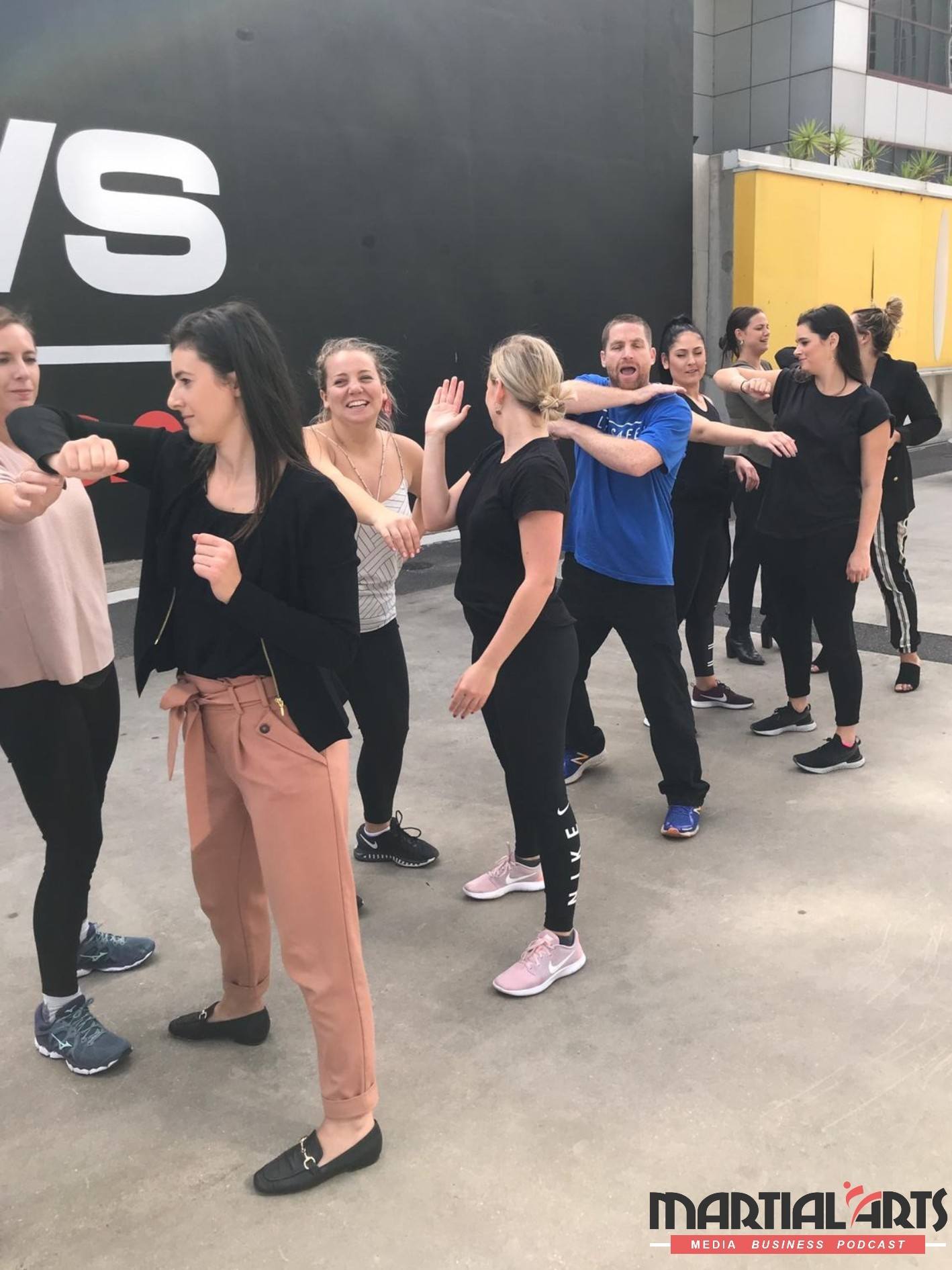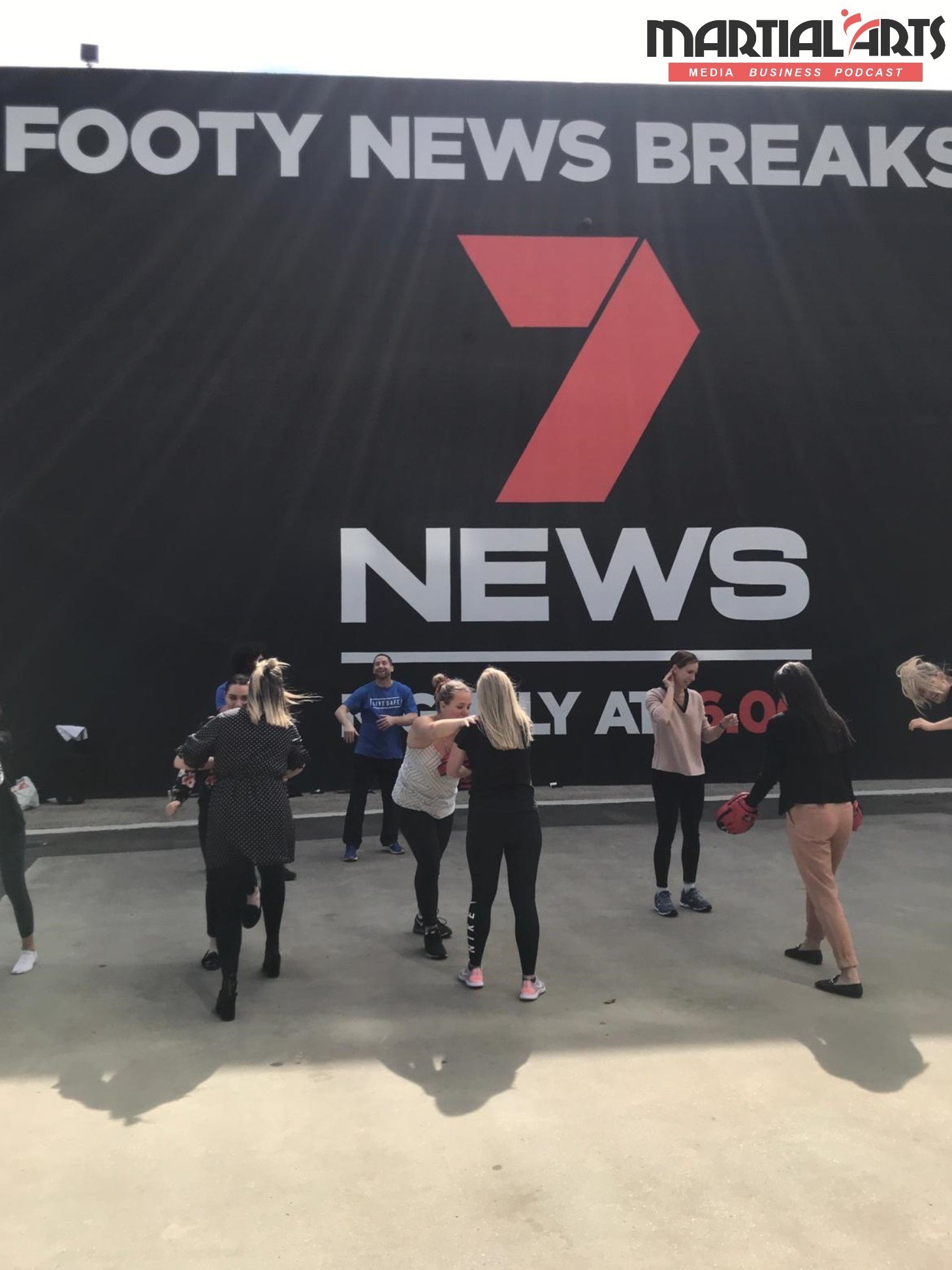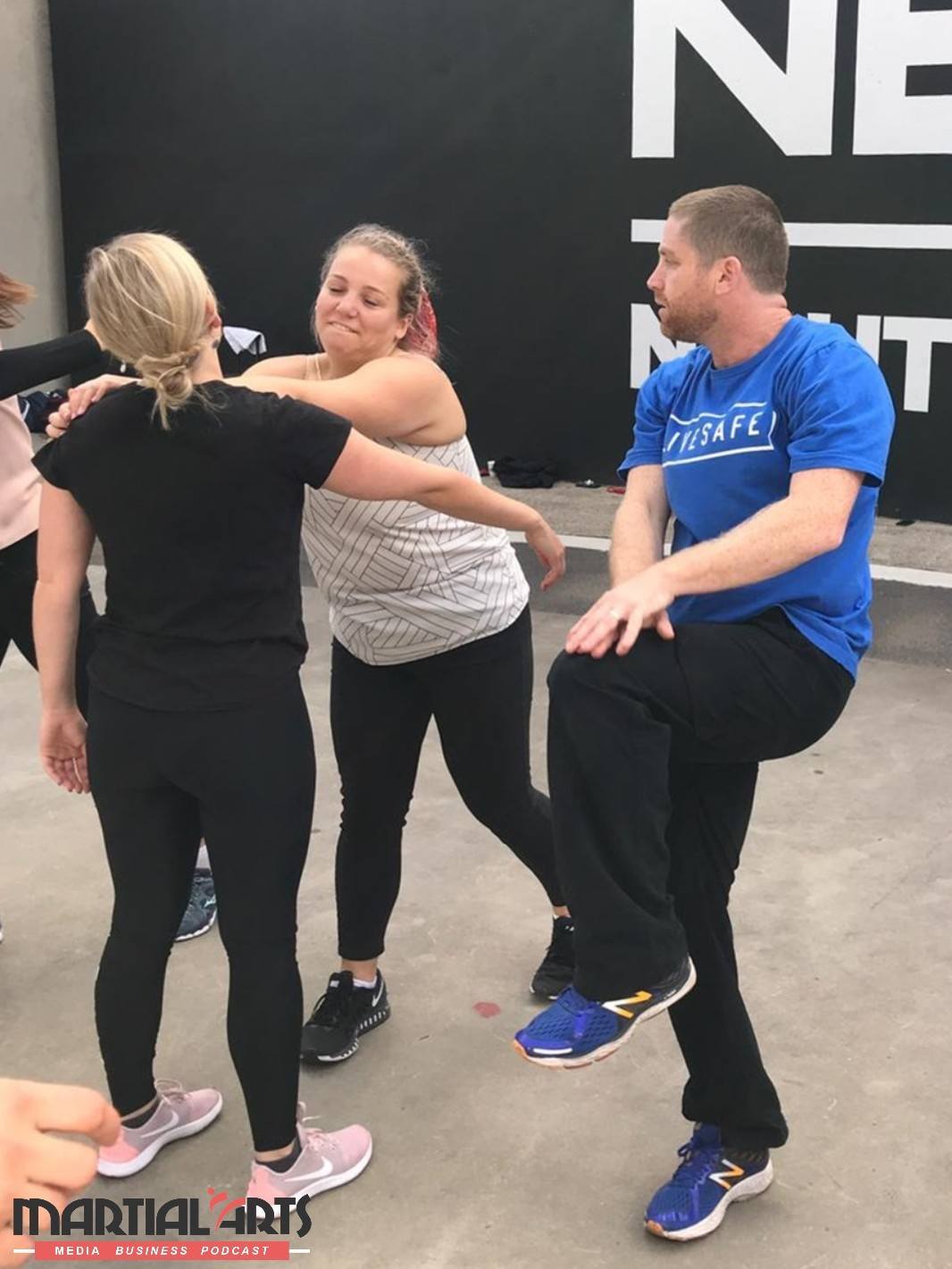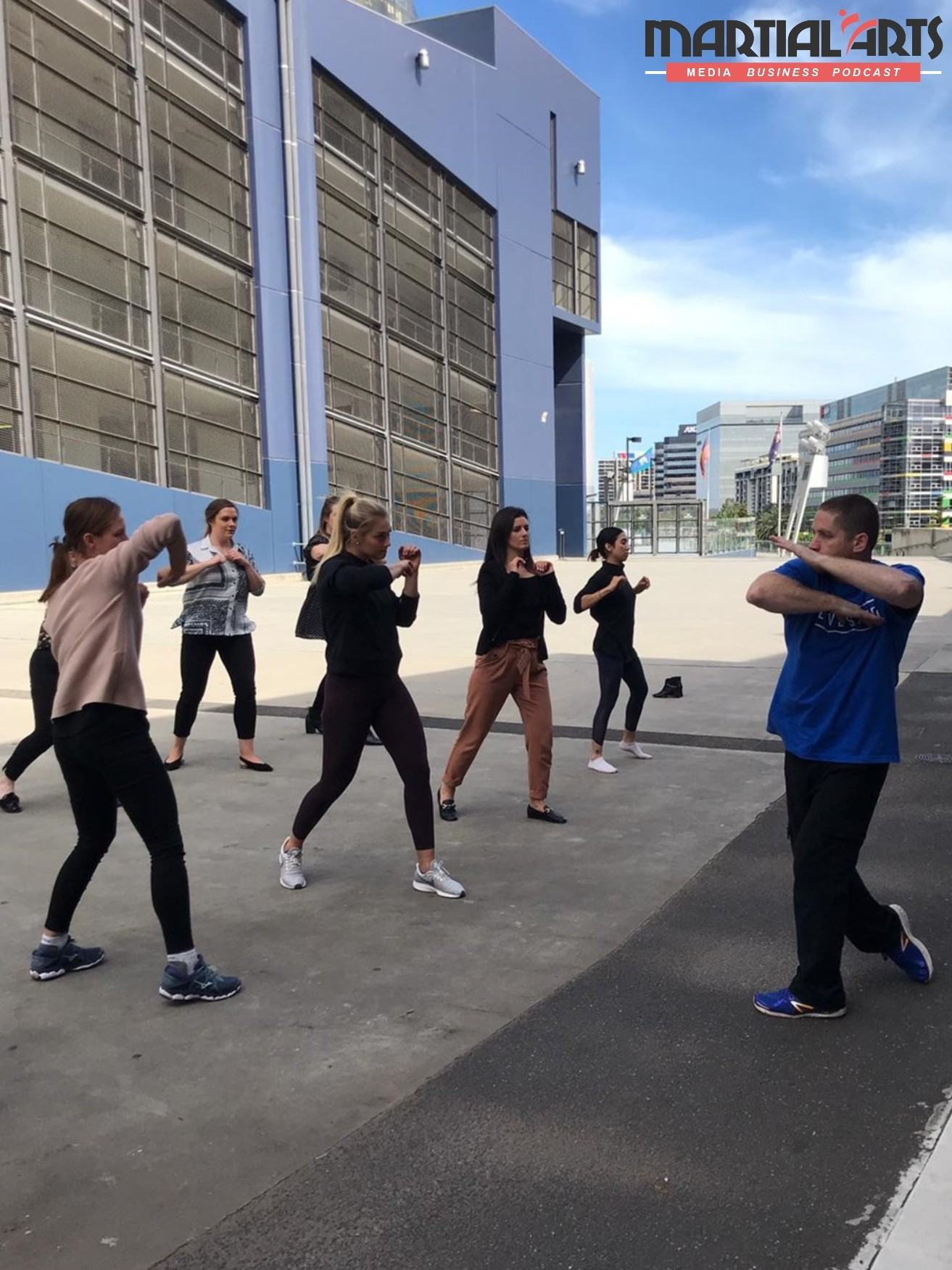Darren Reece is the coach behind many Muay Thai champions. He shares what it takes and a snapshot of his 30-year Muay Thai career.
- How Darren Reece evolved from being a Muay Thai professional fighter to a martial arts gym owner
- The one skill that’s helped many school owners open their first gym
- The ‘iron sharpens iron’ strategy Darren uses to craft world-class Muay Thai Champions
- How Darren keeps their fighters motivated and focused on their goals
- And more
*Need help growing your martial arts school? Learn More Here.
TRANSCRIPTION
We don't have any processes. I don't train my guys like, “You've got to say this. You've got to say that.” We are just who we are. We love being here. The guys that have jobs as trainers, Dan Skinner and Barrie Oliver work full time for me. Caley loves being in the gym. Chris “Tiger” White, who used to work for me when he finished his fight career, before he shifted away, just loved doing what we're doing. So that carries over because you're happy.
GEORGE: Hey, this is George Fourie and welcome to another Martial Arts Media business podcast. So today I'm local, and I'm live, so something new, not on the virtual face-to-face. So I'm joined today by Darren Reece.
DARREN: Hey George.
GEORGE: Hi.
DARREN: How are you?
GEORGE: How are you doing? Good good good. Darren Reece, well, long history in Muay Thai, I'm going to let him share all the stories. Depending on where you're watching this, here in Perth, there's a big Muay Thai movement. And many, I could almost say all, but most of the paths lead to Riddlers and Darren Reece. And we're sitting here in a room of… How would you describe it? Memorabilia? Like, newspaper articles, trophies, which I've added here as a separate little video. So, we're just going to have a chat, as we do. So thanks for jumping on.
DARREN: No worries George. Thanks for having me.
GEORGE: Cool. So why don't you just give us a quick round up. Who is Darren Reece?

DARREN: Oh, well. My fight nickname was The Riddler, that was given to me by Michael Schiavello who used to commentate all the fights on Fox Sports on Foxtel. Well he's obviously gone on to very big things around the world commentating, chief commentator at commentating fights. He gave me my fight name. Back then all the fighters used to call one another by their names, to the point that sometimes you didn't even know the person's first name, it was just, “Hey, Riddler.” “Hey, Nugget.” “Hey, Pitbull.” Stuff like that, so.
Been in Muay Thai since 1989, I started training. In a combination of Muay Thai and Zen Do Kai. Got into it and loved it straight away. Knew it was what I wanted to do. Was actually at uni, and decided to leave uni because I wanted to be a fighter. Which didn't go down well with the parents, but eventually, especially my mom, came around and supported what I was doing, so.
GEORGE: How do you describe that sort of career path to your professors and lecturers?
DARREN: Well, university of Muay Thai, I guess I've been to, for 30 years, so it's a pretty big degree. But, yeah, it was definitely the right choice and very happy in my life and what has been created and what's going on, so I think it was a good choice.
GEORGE: Yeah totally. So we're sitting here at Riddlers Gym but before we get into just what it is about anything else that's going on, walk us through, how'd you get started? You were talking about, we had a chat earlier about you living and training in Thailand as well. Give us a bit of a background of your career.
DARREN: Well, as I mentioned, I started in Muay Thai and Zen Do Kai. Which was really a martial art that kind of blended everything, or the best of everything in progression, is what Zen Do Kai stands for. Most people in W.A., Perth, in the early days started with the BJC, Bob Jones Corporation. I chose, after training for a while, having my first two fights that I really wanted to pursue the path of fighting. My trainer back then, Sean Allen, that wasn't the path that he wanted to go, so he advised me to move on and go to someone that specializes in Muay Thai.
And from there I started to discover Thailand. Obviously it's so close to Australia, and Muay Thai was starting to become known, more and more exposure to it over here. A Thai person, Phon Martdee, famous pioneer in W.A. especially, was putting on shows and bringing over well-known world champion Thai's, just really got my interest, that lead me to Thailand training trips.
I think the first time was for one month, and the second time was overstaying my three month visa by a month, and staying there for four months, and then another three months trip like that every year, I was making sure I was doing it. And then I lived there from '97 to early 2000, so just did that, yeah for about three and a half years straight. So went there for the Kick's Cup World Championships, which I won and stayed. Yeah, loved it, loved it.
GEORGE: So how difficult is it for someone from Australia, or from, I guess from Western society, to fit in with the Thai culture, and the whole Muay Thai scene, and actually make something of it?

DARREN: Back when I was going there, there weren't the camps down in Phuket and Koh Samui. There was WMC Lamai Gym in Koh Samui, which is still around and going strong now, but back then that was pretty much one of the few Western places that you could go. In Pattaya in Thailand there was Sibutong, which was a world famous and that's where all the Westerners were going early on, that's where I went, my second trip, spent my four months.
In comparison to now, where the Thai's have realized that it can be a tourist thing, just increasing the exposure of it. It's great for the Thai economy and Thai culture and obviously the spread of Muay Thai. Now it truly is a world sport, and people from all over the world go to these training camps now in Thailand. And it's not a matter of being accepted or anything like that, it's just you go there and you train.
So very early on, as I said, those kinds of places weren't around. And the camp that I spent my three and a bit years, Sangmorakot Gym in Bangkok, a large part of that time, I was the only white person there, training with professional Thai's, it was a professional camp in Bangkok, so it was just the ultimate experience. It was obviously very challenging, there was very little English back then. I had to learn Thai, which I wanted to do anyway, living in the country. And, yeah, it was a great exposure.
GEORGE: Fast-forwarding a bit, how did Riddlers come about?

DARREN: Riddlers came about in that, in the latter part of my career, where I was full-time, I obviously started to think about the future. Actually, I knew very early on that I wanted to teach Muay Thai, that it was going to be my career after competing, after fighting. So I did make plans for a very long time. I've got lots of books, still got notebooks with notes and ideas. Gym names, and systems and things that I wanted to have in place. So it was a long term plan. And then when I got to that stage of my fight career, I knew that I needed to start thinking of the future, or putting it into action, so to speak.
So I started doing a few PT's, a couple of small classes, and then the PT's started to build up. And then that lead to, okay, it's time to start the gym. So I, funny story, one of my friends that I used to go to his house to train him, I was training him in his garage underneath his house, which is in Leederville, not far from where we are now, and we'd finished the session, we were like, “Man, this is a good size for a gym.” So it was about 80 or 90 square meters, it was about a triple size carport, and he was looking to shift, so he shifted out of the house, I shifted into the house in Leederville, and that's where Riddlers started. So I was lucky enough, it was kind of a blessing that I only had one lot of overheads. I think rent and stuff like that is the biggest killer of new businesses. So all I had to do was be paying my rent and I had the gym there.
So Riddlers operated from there for about three, three and a half years, until I started to get too busy and my neighbor complained about parking and noise and that kind of thing. I was getting up to 20 people turning up for evening classes. I was training with fighters, Eugene Ekkelboom, Chris “Tiger” White, a couple of my novice, newer guys that I was bringing up, in the mornings, so that I was free to do PT's and teach classes in the evening time. But I had problems with the council because of the complaint, and then that pushed me again to take that next step, and find premises, which happened to be nearby.
Ran into a friend of mine, told him that I needed to find somewhere because I was having council problems. He was in the butcher's shop and a coffee shop, and he's like, “Man, come and check out this place behind me. It's not being used. We go and do some training there after work, and we've got a bag hanging up, and hit the bag and stuff like that.” So I went in there and it was 200 square meters, so more than double what I had. And it was just perfect. So that was where I started.
GEORGE: You're not the first school owner I speak to who has transitioned from really focusing on the private sector. We actually email, in our Partners program that we work on, I'm working with a gentleman on Thursday nights, and we're going to get a program called Profit With Privates. Not that that was his way of getting started, but they needed to renovate the gym. So they put all their energy in how they can use private classes to stack up the cash. A good way to transition.
So now you guys are here on the main road, huge gym, what I really want to know from you is, you've got all these champions, and all these people that come through Riddlers Gym and reach such a high level. What do you think is the edge? What do you do different that you create so many people at such a high level?

DARREN: Two things. I think obviously it's my experience from fighting that has sort of experienced all situations. And in fights, seen what's going on. And being able to read it from my experience, being able to communicate that to my fighters where, very importantly, having the respect of my fighters to the point that they listen and use that instruction for their gain. So then it's like they're fighting with my experience, my time, no matter what level they're at. So that's one thing.
And the other thing is having strong fighters. I have a saying, “Iron sharpens iron.” So the more strong people that you have working together, the more and the better everyone grows. So if you're in a small gym, that's like one champion fighter and you've only got other novices and stuff to work with, you're not getting that sparring, clinching, and stuff like that, that you need. Or perhaps guidance from the trainer, because you've outgrown the trainer. Whereas when you've got lots of those people around you, then you all help one another to grow. So yeah, I love that saying, “Iron sharpens iron.” And it's very, very true.
So from those early days, when I had the Eugene Ekkelboom, Chad Walker, Kim Olsen, all those guys. And for the smaller guys, I had Caley working with Chris “Tiger” White, with “Pitbull” Aram, stuff like that. So those guys really had that common to work hard together, spar hard, clinch hard. So, yeah.
GEORGE: Right. So you've got, I mean first and foremost, you've got the right people, and the champions attract more champions. Obviously people see the success that everyone that trains here has had here, and that sends more people around. Is there anything else that you really focus on?
DARREN: Lots of technique. We're big on technique. Big on skill. But also big on strong basics. I personally don't use lots of fancy techniques and things like that. I stick with strong basics and will work those, hammer those basics, we hammer them over and over again. Everyone is, all my guys, are extremely fit, well-conditioned. And we're kind of known for that.
GEORGE: Gotcha. So tell me more about Riddlers, and you've got all the fight shows, and things like that going on?

DARREN: Well I've promoted for shows actually before I even started the gym. I started promoting with a fellow group, splitting the load between us. That was when I was still fighting. So I was fighting on shows, but we were a big group promoting together. That lead to just a partnership in promoting.
I've always felt the need to promote because of the level of guys that I have as fighters. I've felt like when guys gain experience, there's obviously a lot less fights locally, and even interstate. So if you sit there waiting for the fights to come, or there's no fights, more so there's no fights, fighters lose motivation, and they're not in the gym training. These things can happen. So by having a regular schedule of fights, they have those goals. It keeps the fighters motivated if they know that they're guaranteed three or five fights per year, they're more likely to stay motivated and in the gym.
And then if anything else comes up, and this happens a lot these days because there's a lot more promotions around, a lot more going on. A lot of interstate opportunities come and you can take fights on fairly short notice. Like I get lots of calls from interstate promoters, we get lots of trips away. I mean, because with having a big fight team, the promoters also know that they're not just going to get one fighter. If they need three or four, strong chances are that we're going to be able to fit that. So they end up with three or four big fights on their card, with one trainer, so it saves a lot of money to get a lot of fights that way.
GEORGE: What's the big drive? I mean, you've built this machine. I mean obviously you've got the love for the Muay Thai and the passion for the sport. But what keeps you going? What's the big drive for you?
DARREN: I guess helping people on the path that I got to follow. Leading your guys, passing on your experience, seeing them use it to grow in their experience, and just get to live their dreams, to fight and compete. Maybe it’s achieving titles, but for a lot it's just actually competing and doing it, I live supporting and helping that. Trying to help them achieve those dreams.
GEORGE: Got you. So I'm trying to think of some things that we haven't asked, and I'm looking at something here that says, “10 things you don't know about Darren Reece.” And I don't know how old these are, but…
DARREN: Yeah, these are pretty old, so back then…
GEORGE: What's changed?

DARREN: Yeah, quite a few. There's one here, “I do not have an iPhone. Don't have an iPod. Don't use Facebook. Don't use Twitter, download music or burn CDs.” I still don't do a lot of those things. But I do definitely have an iPhone, and I use Facebook, it's a fantastic business tool and just connecting with people. Good for promoting things. It's really changed the way that we advertise our businesses, as you well know. And even for fight shows, we used to get thousands and thousands of fliers and posters done up for shows now, and have to do flier drops and pay for postal distribution and things like that to try and get it out, but it was very… it didn't have a high success rate because it wasn't really a target market.
And now with Facebook, where you're promoting it through people that are in the industry, or friends of those people, or getting those fighters to share things about their fights, it just hits the target market so much more. So it really has changed how we have to do things, and we have to evolve, so I've kind of evolved too.
But having said that, I'm still not overly technical. I'm not huge on the computer. I use Facebook, a little bit of Instagram, but I'm by no means an expert on it. And the things I do right are what I feel. The same as the things with Riddlers Gym, with the business, how we treat people. Everyone always comments on how friendly the gym is, and the great vibes that we have here, in the community, and things like that. And it's nothing that we've ever tried to enforce or push or anything like that, I just got the right trainers and the right personalities, and it's just how everyone is, you know?
GEORGE: Yeah.
DARREN: You say, “Hi.” To everyone. The conversations with them and just, I guess, people can't really believe it, but it's what we love doing.
GEORGE: For sure. But you might be selling yourself short there as well, right? Because that's got to come from the top. So if that's the type of person you are, you've set the tone for that culture.
DARREN: Yeah.
GEORGE: Then that's what's going to take.
DARREN: Yeah, yep.
GEORGE: That's what's going to catch on.

DARREN: Yeah and it's been a big part of the community here. Despite all the champions that we've had, and have, here at the gym, no one's really put up on a pedestal, and so there's no egos. No one's put up on that pedestal. We promote all the fighters equally. All the members, no one's really any more important than anyone else. And it doesn't create that monster.
GEORGE: Yeah.
DARREN: That monster thing that can affect an environment or a community, so.
GEORGE: Just from having that strong culture, a lot of your marketing is actually good fun, because that's enforcing the culture, and people talk, then that's the message that comes across, how much effort. We spoke a bit about culture earlier. Is there certain things that you focus on, that really shapes the culture? Or do you really just stick to who you are, and that sort of resonates through that…?

DARREN: Just really stick to who we are. We don't have any processes. I don't train my guys like, “You've got to say this. You've got to say that.” We are just who we are. We love being here. The guys that have jobs as trainers, Dan Skinner and Barrie Oliver work full time for me. Caley loves being in the gym. Chris “Tiger” White, who used to work for me when he finished his fight career, before he shifted away, just loved doing what we're doing. So that carries over because you're happy, and you're motivating people, and when you're teaching and pushing people and seeing them give it a crack and just loving it, plus you're getting to pass on what you're passionate about and seeing other people enjoy it, just makes you feel good inside.
GEORGE: So what's next for you? Where are things headed for Darren Reece and Riddlers Gym?
DARREN: Oh, look, I… to be honest, my focus has changed… Or, not changed but my focus has broadened in that I'm not interested in expanding the business. I don't want to work more hours. Caley and I have had two boys, so I've got two sons, which we've had in the last three years. Maddox turns three at the end of the month, Leo's nine months, and to be honest, I just want to spend as much time with them as I can.
GEORGE: Right.
DARREN: I don't want to, in a few years, go, “Oh damn. I was busy. I wish I'd spent more time with the boys.”
GEORGE: Totally.
DARREN: Because they're only young for a period of time. In a couple of years they're going to be in school, and then they're going to be teenagers and not want to hang out with me anymore because I'm not the cool guy. So I want to make the absolute most of that. So to be honest, I'm happy with keeping Riddlers the way it is. I've got no interest in expanding, opening another premises, getting bigger. I just love where I'm at. So that I'm enjoying life. I don't feel like I have to work harder. And I'm still working hard, but I'm also working smarter. And I've got great trainers, great team around us, which keeps things the way that they are.
GEORGE: Yeah.
DARREN: And keeps me happy. And my fighters still get lots of attention and lots of focus, and I don't feel that I'm doing any less a job. Everyone's getting some really big fights and still stepping up and growing, through the state level, national level and international level.
GEORGE: Yeah. I love that, because sometimes the focus can be growth for the sake of growth. When is enough? You've reached that point in your life, and family comes first, and that's where you want to spend time. And I think the gym is awesome, you're producing great fighters, it's providing for you and your family, and you get to do what you love every day. Why change? Why complicate? What's in it?
DARREN: Yeah. I want to train every day. I want to have an hour for myself and train, whether it is hitting pads, or doing some strength and conditioning, doing some cross fist stuff. I love it and want to do that. That keeps me happy, keeps me sane. And especially with the boys, where it's go, go, go, and it's all about them, you need that sort of switch off time, and just be able to get in your own zone, and just go out and go for it, do it.
GEORGE: Yeah. I've just reached that, coolness of dad has dropped. I was cool, but 13, my son is 13 now. Yeah, I can see my coolness on the decline, very quickly, off.
DARREN: That would be hard to accept.
GEORGE: Yeah. Hey, cool, Darren. Thanks so much for hanging out and chatting. So, just quickly, if people want to know more about you, and we run for at least the sort of time of your next fight show coming up, but tell us about your fight show because you have got a couple in circulation. And if people want to reach out to you, where can they find you?
DARREN: Yeah, well you can if you're interested, you come down and try Riddlers Gym. We've obviously got a fairly active Facebook page, we've got a website, riddlersgym.com.au, you can check us out. It's got all about the trainers, our full schedule, pricing, and everything’s on there. And our fight shows, keep an eye out for EPIC Fight Promotions, I think we're up to number 21, which focuses on our professionals and our main experienced fighters.
And then my wife Caley Reece loves to promote her show, it's called Evolve, it's coming up this Sunday. That's focused on grass roots Muay Thai and she'll have a couple of main card fights, including the MTA State Title, which she's got on this one. And she works very hard to bring that for the fighters. It's something that she feels like she wants to do on her own, and give back to the sport that did so much for her.
GEORGE: Yeah, perfect. Hey, awesome. Darren, thanks so much for hanging out.
DARREN: Thanks very much, George. Thanks everyone.
GEORGE: Speak soon. Cheers.
DARREN: Cheers. Thank you.
Awesome. Thanks for listening. If you want to connect with other top and smart martial arts school owners, and have a chat about marketing, lead generation, what's working now, or just have a gentle rant about things that are happening in the industry, then I want to invite you to join our Facebook group.
It's a private Facebook group and in there, I share a lot of extra videos and downloads and worksheets – the things that are working for us when we help school owners grow and share a couple of video interviews and a bunch of cool extra resources.
So it's called the Martial Arts Media Business Community and an easy way to access it is, if you just go to the domain named martialartsmedia.group, so martialaartsmedia.group, g-r-o-u-p, there's no .Com or anything, martialartsmedia.group. That will take you straight there. Request to join and I will accept your invitation.
Thanks – I'll speak to you on the next episode – cheers!
Here are 3 ways we can help scale your school right now.
1. Join the Martial Arts Media community.
It's our new Facebook community where martial arts school owners get to ask questions about online marketing and get access to training videos that we don't share elsewhere – Click Here.
2. Join the Martial Arts Media Academy and become a Case Study.
I'm working closely with a group of martial arts school owners this month. If you'd like to work with me to help you grow your martial arts school, message me with the word ‘Case Study'.
3. Work with me and my team privately.
If you would like to work with me and my team to scale your school to the next level, then message me with the word ‘private'… tell me a little about your business and what you would like to work on together and I'll get you all the details.
Enjoyed the show? Get more martial arts business tips when you subscribe on iTunes for iPhone or Stitcher Radio for Android devices.
***NEW*** Now available on Spotify!
Podcast Sponsored by Martial Arts Media Partners




